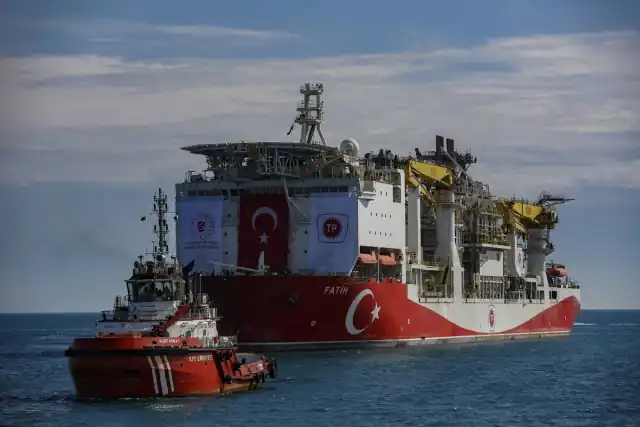Turkey is set to export natural gas to Bulgaria under a new brand called “Turkish Blend,” which will include a mixture of gas from various sources. This strategic move not only positions Turkey as a key player in Europe’s energy market but also facilitates the transit of gas to Central European countries such as Hungary and Slovakia.
The plan was disclosed by Turkish Energy and Natural Resources Minister Alparslan Bayraktar during an interview with “Millet” media in Filyos, where the infrastructure from Turkey’s Black Sea Sakarya gas field is being developed.
Bayraktar highlighted that the current capacity for these exports stands at 3.5 billion cubic meters, with ambitions to double this capacity through investments in collaboration with Bulgaria.
The expansion of gas exports comes amid Turkey’s ongoing efforts to leverage its vast energy infrastructure. Turkey’s current gas consumption amounts to 50 billion cubic meters annually, and the nation plans to export 7.5 billion cubic meters, which constitutes 15% of its total consumption.
Turkey’s natural gas supply is a complex mixture of sources, with Russia remaining its largest provider, accounting for about 40% of the country’s needs. In addition, Turkey has contracts for liquefied natural gas (LNG) with other key global suppliers, including the United States, Qatar, Algeria, Nigeria, and Oman.
The introduction of the “Turkish Blend” brand underscores the complexity of energy flows in the region. Since the gas will come from a variety of sources, it will be difficult to trace its precise origin, raising questions for European Union nations that may be concerned about the possibility of purchasing gas that originated from Russian fields. This situation could further complicate the EU’s energy diversification efforts.
The infrastructure enabling Turkey’s role as a major gas supplier includes the Trans-Anatolian Natural Gas Pipeline (TANAP), operational since 2018, and the TurkStream pipeline, operational since 2020.
These pipelines, particularly the Bulgarian route, play a crucial role in delivering gas to countries across Europe, including Romania, Hungary, Slovakia, North Macedonia, and Serbia.
In January 2023, Bulgaria’s caretaker government and President Rumen Radev signed a 13-year agreement with Turkey’s state gas supplier BOTAŞ.
Under this contract, Bulgaria’s state-owned gas supplier Bulgargaz is obligated to pay nearly $500,000 daily for access to the gas transmission network, regardless of actual usage. This agreement underscores Bulgaria’s reliance on Turkish energy infrastructure to secure its gas supply.
Turkey’s expanding role in the European gas market is supported by investments in underground storage, floating LNG platforms, and a robust gas distribution system managed by BOTAŞ.
The country aims to develop its gas hub, with discussions ongoing between Turkey and Gazprom regarding the establishment of a joint operator for the Gas Trade Center, located in the Istanbul Financial Center. This center is envisioned as a key location for setting gas prices in the region.
As Turkey strengthens its position as a regional energy hub, the “Turkish Blend” initiative reflects the country’s strategic ambition to supply natural gas to Europe while balancing its relationships with major global energy players like Russia.
The success of this initiative could further solidify Turkey’s influence in the European energy market and enhance its geopolitical standing in the region.

